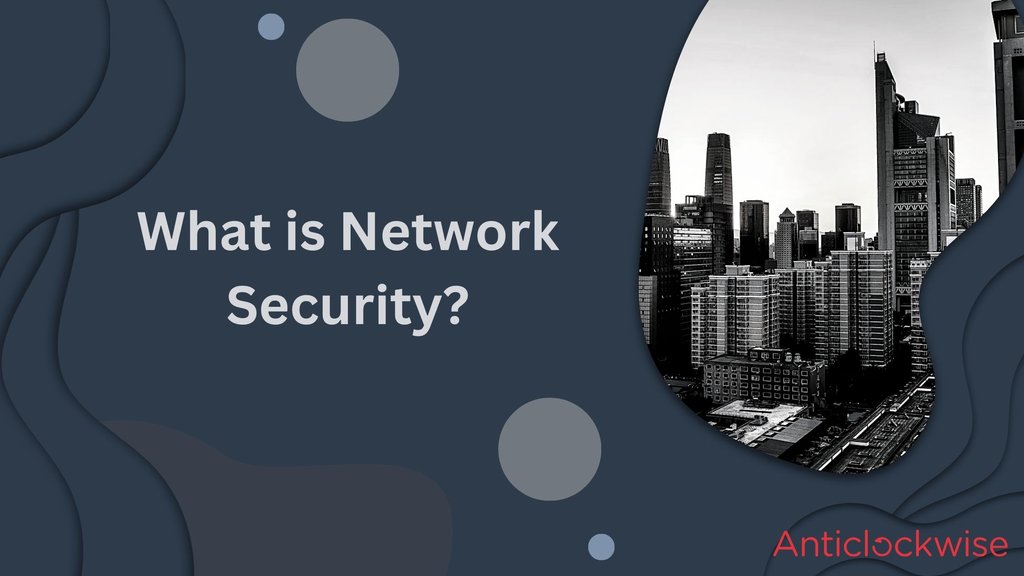
What is Network Security?
While most people are getting acquainted with the benefits that technology presents, security networks allow us to use such technology without worrying about its increasing interconnectivity. Knowledge of the principles of network security can help in the protection of valuable information, in eliminating undesired access, and in ensuring the normal functioning of the system. The present work focuses on the basic aspects of network security such as firewalls or encrypting communications and discusses useful tips on how to secure your capital on the internet.
Network Security Basics
Network Security is the term used to describe the form of measures taken to protect the usability, reliability, integrity, and safety of information and computer networks. This includes both hardware and software solutions that are designed to thwart intrusions and protect classified information from unauthorised persons. For instance, consider a modern, small business that has a Local Area Network (LAN) in operation. Without proper network security provisions in place, an unsanctioned individual could quite easily tap into the network and retrieve sensitive client details stored within it.
Why is Network Security Important?
The first and foremost is safeguarding information: Most networks tend to store sensitive information that requires some degree of protection from unauthorised users. Such information can range from the most confidential of individuals' social security numbers or bank details to trade secrets of a business. Any such exposure to unauthorised sources may result to identify theft, loss of hard-earned money, and even tarnishing the reputation of an individual.
To avert any imminent loss especially monetary ones: Unfortunately, all the gains an organisation may have made in a period can be wiped off within a few hours due to a targeted cyber-attack. This may include loss of productive hours, interruptions in normal business activities and written-off asset values. There are many possibilities such as threats of violence leading to payoffs, monetary fines for breaching regulations, and losses due to theft.
Key Components of Network Security
Envision network security as a multiple of defensive modes which all work together. Below are some of the key elements:
Firewalls
A firewall should be visualized as a soldier on guard for your network. It scans and vet all traffic both incoming and outgoing before allowing any access to the network. Firewalls help secure your network from unwelcomed intrusions and thwarting any negative movements which may ruin the network’s integrity.
Intrusion Detection and Prevention Systems (IDPS)
IDPS is a very crucial component in the detection and prevention of cyber-attacks. These systems monitor network traffic for signs of abnormal behavior and can even prevent the occurrence of imminent threats almost in real-time. For example, an IDPS freezes the account whenever there are multiple login attempts from diverse locations on a company’s server within a brief period.
Encryption
Encryption allows us to transmit confidential information over networks with confidence. Data encryption is the process of changing information into an unrecognizable form and that is where veil over disturbance comes in, preventing any intrusion into one’s privacy. Such concerns cannot be avoided for certain activities conducted over the internet such as online banking and e-commerce, which require the security of finance and personal information.
Access Control
Access control helps organisations to protect their network resources by restricting access to only authorized users. Organisations’ valuable properties may be secured more by reinforcing security and deterring unauthorised accessibility by adopting tools like MFA, biometrics, and complex passwords, among others.
Design Your Ideal Network Today!
Get a future-proof network with our reliable and scalable data network design services.
Best Practices for Network Security
It takes effort to create a secure network. The following are crucial procedures to maintain the strength of your defenses:
Regular Updates and Patches
Organisations are more secure from cyberattacks if they stay abreast with the current security patches. Regular updates seal loopholes therefore it is hard for attackers to exploit weaknesses and access confidential information. This positive mindset is necessary in making sure that the internet remains safe.
Strong Password Policies
Both individuals and organisations can bolster their online security by strengthening and making unique passwords as well as avoiding sharing them with anyone. This practice that may appear simplistic but is efficacious in reducing and curbing the prevalence of security breaches focuses on the use of unauthorised entry to access confidential data.
Employee Training and Awareness
In most cases, the employees of an organisation tend to be the first viewers of a cyberattack. Training the employees on the aspect of data security can help organisations avoid such incidences related to breaches caused due to human error. Periodic refresher courses help in this regard by training employees on which behaviors to lookout for and whom to inform about such actions, such as phishing, for example.
Regular Security Audits and Assessments
Regular security assessments allow organizations to identify and remove potential weaknesses in their networks before they can be exploited, making their network security stronger. These usually entail audits or penetration tests and assist organisations to counter continuously evolving cyberspace threats and safeguard their secrets.
As we live in a digitally connected world, it is very important to protect your online identity or presence. To mitigate the chances of cyber intrusion, it is essential to adopt a multi-layered security strategy, which consists of effective anti-viruses, safe web-browsing practices and periodic audits. Lastly, do not forget that the most important component of any network security is its users. Teaching your staff basic cyber security practices will help avoid security breaches caused by human errors.
At Anticlockwise, we strive to ensure you are never lost within the frustrating world of cybersecurity. With a range of network security products, consultancy services, and the best network system in place, we enable you to safeguard your mobile device and even go beyond this by excelling in the digital environment.

Managing Director
